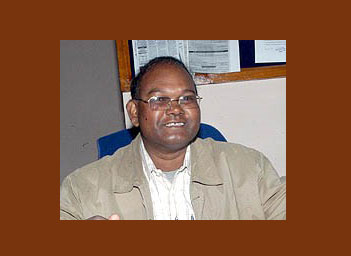You say in the book that the formation of the European Union coincided with the beginning of the decline of the faith in Europe. Can you explain?
I did not say that the formation of the EU coincided with the decline of the faith, but that it may not be a coincidence. It occurred to me on the day before the Brexit referendum, while I was staying in England, that the EU might have been like the Tower of Babel for the Europeans. The prehistoric people built the Tower in the hope of not being dispersed across the land. It was people’s attempt to build a secular city that would unite them and make them stronger. God was not pleased with it and scattered them. Europeans established the EU after experiencing two major world wars in the same century. I do not blame them. But in the hearts of people, perhaps they looked to a man-made organization, not to God, to maintain peace among them. I cannot prove this theory, but in the Old Testament, we have many examples where God was not pleased with Israel’s alliance with neighboring nations because Israel was trusting men more than God.
For the benefit of our readers, please give us three reasons why Europe needs to be reached again with the Gospel?
(3) Many times, people fail the first time they try to obey God. They need to try again to be successful. David had to bring the ark of the covenant twice. Jonas had to be sent to Nineveh. Peter had to be called by Jesus for the second time. Jesus had to lay hands on the blind man twice to heal him. Once is not enough.
It is not the global church’s job to do it. It is the Europeans’ job to do it. My task is to share this vision with them and help them to take their fate into their hands. Because Europeans will do the job, it will be uniquely European. Everything else is the natural byproduct of an authentic spiritual renewal.
If you criticize Islam in the UK, you might well end up in court. Europe is no different. Don’t you think the influence of Islam on European society and the rise of anti-Christian attitudes are going to make the re-evangelization of Europe very difficult?
I live in Korea where Buddhists outnumber Christians. But this had never been a problem for preaching the gospel in Korea. Every normal society is pluralistic. Europe cannot be an exception. I do not consider Islam to be a threat or a competition. There is ample room in Europe to preach the gospel without worrying about offending Muslims. Anti-Christian attitudes exist everywhere in the world with or without the Muslims. I went to a college in New England where anti-Christian attitudes were very strong. So I’m used to it.
The Muslim population of Europe is said to be over 26 million. Christian observers are worried that this could be potentially a very large fifth column in Europe. Does the global church have reasons to be afraid of the Islamization of Europe?

You are against introducing an American version of Christianity into Europe in the second round of its evangelization. Why do you think so? What is the alternative?
The American version of Evangelicalism has lost much of its credibility by colluding with the political right. Christianity has been identified with Americanism in the U.S. This fact was amply demonstrated during the Presidential Election. Evangelicalism was a renewal movement and was not meant to be its own brand of Christianity. Evangelicalism does not have the depth and width of theology to make it a viable alternative. Although churches must be evangelistic in their approach, they do not need to adopt or imitate Evangelicalism. The alternative has to be worked out by the European Christians themselves, but they can learn something from Christians in other parts of the world, like South Korea, where evangelization and secularization took place at the same time. Korea is the proof that evangelization and secularization don’t have to be mutually exclusive. Herein Europeans may find the model for Christianity in the postmodern era.
One of the reasons for empty churches anywhere is lackluster pastorate, but what has led to the watering down of the gospel messages that we hear from the pulpit?
The watering down of the gospel messages is due to the loss of faith in the Bible, the unique truth of Jesus Christ, and the power of the Holy Spirit. The loss of faith in the Bible is critical. If pastors cannot believe the Bible, what will they preach about, and why should they preach it? The Holy Spirit gives spiritual power only when a preacher lifts up the name of Jesus. Only the Holy Spirit can revive a church. When congregations cannot feel the Holy Spirit, they will lose motivation and stop coming to church. We can’t blame them.
Has what we expect from churches changed since, say, 100 years ago?
So much. I think that many of the western churches were legalistic in their understanding of Christianity 100 years ago. They believed in cultural Christianity. Many changes have taken place in the past 100 years. Missionary activities began to take off during the same period of time. The charismatic renewal, evangelical revival, ecumenical movement, and globalization of Christianity occurred within the past 100 years. All these developments coincided with the growth of democracy, civil rights, human rights, women’s rights, the liberation of the Third World colonies, and racial equality. The Christendom has never been more interesting since the beginning of the 20th century. We are blessed to be living in this time because we will see some things that the prior generations never saw.
You have founded a church in South Korea and pastored it for 20 years. But in Europe, you may be considered an outsider. How do you then propose to plant churches there or inspire others to do it?
I am not an outsider, but a minister sent to Europe by the Lord. If someone sent by God is an outsider, so be it. Jonas was an outsider, and so was Apostle Paul. Many times, the insiders can’t see the contradictions of their own culture. It takes an outsider to correctly diagnose the problems of a given culture. Corporations hire outside consultants to fix the problems that couldn’t be fixed by themselves. I will not be an outsider trying to bring the gospel to Europeans. I will become a European, living among them, eating their food, and speaking their languages. As long as people appreciate and trust me, I don’t mind being considered an outsider. I know that I am always at home with the Lord.
Covid-19 has changed the world in more ways than one. How relevant is the concept of house churches post-virus, especially in Europe?





















